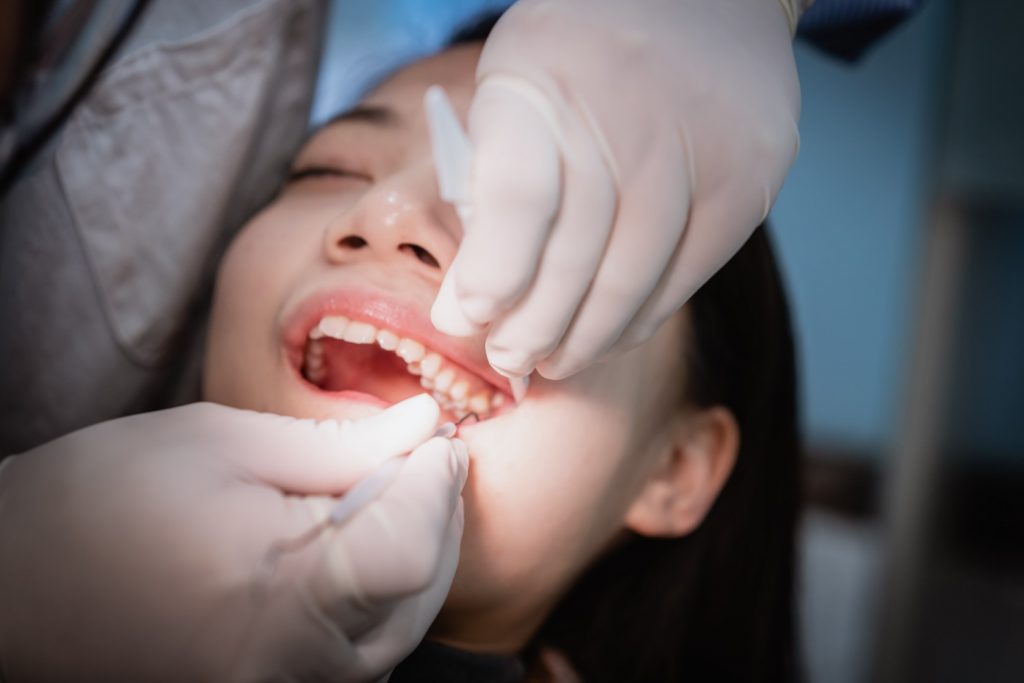A person’s final set of molars—the large, flat teeth at the back of the mouth that grind and chew food—typically emerge in young adulthood. In the 17th century, people in European countries associated the late teens and early 20s with increased maturity. They started referring to these “third molars” as “wisdom teeth.”
Sometimes, however, removing these teeth is the wisest thing to do for your oral health.
Are you considering wisdom teeth removal in Philadelphia? We at Penn Dental Medicine at PHMC Public Health Campus on Cedar want you to have accurate information about when this procedure may be necessary, what to expect, and how we make it as painless and affordable as possible.
Do You Need To Have Your Wisdom Teeth Extracted?
 Not everyone needs to have their wisdom teeth removed. For some patients, these third molars break through the gum exactly as they should.
Not everyone needs to have their wisdom teeth removed. For some patients, these third molars break through the gum exactly as they should.
But other patients’ wisdom teeth become impacted. They don’t have enough space to properly erupt. Indeed, 90% of patients have at least one impacted wisdom tooth.
Impaction can lead to such complications as periodontal disease (gum disease), oral infections, decayed teeth, and damage to adjacent teeth.
Even when they do properly break through the gum tissue, wisdom teeth can be a factor in overcrowding, which makes your teeth and gums harder to keep clean and healthy. They can also cause pain and discomfort that leads to difficulty in eating and speaking.
If you are experiencing some of these symptoms, you may need wisdom teeth removal:
- Chronic bad breath.
- Severe oral pain.
- Tooth decay.
- Gum infection.
- Gum disease.
- Shifting position of adjacent teeth.
Consulting with a dental professional to determine the best course of action for your specific situation is always important.
What Can You Expect When Having Your Wisdom Teeth Removed?
Wisdom teeth removal, in Philadelphia or anywhere, is a common oral surgery usually performed on an outpatient basis.
Before Your Extraction
 Before the procedure, your oral surgeon will examine your mouth. Your examination will include X-rays to assess the condition of your teeth, gums, and jawbone.
Before the procedure, your oral surgeon will examine your mouth. Your examination will include X-rays to assess the condition of your teeth, gums, and jawbone.
This assessment helps determine the best surgical procedure and treatment options for your specific needs. It also helps identify such potential issues as gum disease, tooth decay, or bone loss that may affect your surgery and postoperative care.
You will need to take these steps before your wisdom tooth removal:
- Follow any preoperative instructions your oral surgeon gives you, including fasting and avoiding smoking and alcohol.
- Take any prescribed medications as directed.
- Stock up on soft foods for after the surgery.
- Prepare your home with a comfortable space to rest and have the necessary supplies on hand.
During Your Extraction
Your oral surgeon will first administer local anesthesia to numb the area around the tooth. While general anesthesia isn’t usually required, your surgeon may recommend it if your extraction will be especially complex, or if you’re experiencing high levels of stress.
If the tooth is impacted or not fully erupted, your surgeon may make an incision in the gum to access the tooth.
The surgeon may also need to divide the tooth into smaller pieces for easier removal.
After Your Extraction
Once the surgeon extracts the tooth, they will thoroughly clean the area of any debris and place stitches if necessary. After the procedure, your surgeon will give postoperative instructions and prescribe pain medication if needed.
You may experience some swelling, discomfort, and bleeding in the days following the extraction. You should be able to resume your regular activities within three to five days. Full recovery takes, on average, one to two weeks.
Compassionate, Low-Cost Oral Surgery at PDM at PHMC on Cedar
 Although general dentists may sometimes remove wisdom teeth, oral surgeons who have received specialized training generally perform the procedure.
Although general dentists may sometimes remove wisdom teeth, oral surgeons who have received specialized training generally perform the procedure.
At PDM at PHMC on Cedar, third- and fourth-year students at the University of Pennsylvania School of Dental Medicine who are specifically trained to diagnose and treat conditions related to the mouth, jaws, and face perform the removal of wisdom teeth.
They are the next generation of wisdom teeth specialists. They treat patients under the close supervision of experienced wisdom tooth extraction specialists, many of whom are dental school faculty. These Philadelphia oral surgeons teach the latest advances in their field.
In addition, the stress-free and calm environment at PDM at PHMC on Cedar makes wisdom teeth removal a smooth process.
Our compassionate and knowledgeable student surgeons provide clear communication about the process from start to finish. They also use proven, patient-centered techniques to help alleviate your anxiety and put you at ease. As a result, your oral surgery will be more comfortable, efficient, and successful.
Finally, wisdom tooth extraction is a low-cost oral surgery at PDM at PHMC on Cedar. Our educational mission as a dental school teaching clinic allows us to provide wisdom tooth removal for a fraction of what you would pay at most private dental practices.
If you need wisdom teeth removal in Philadelphia, schedule your appointment online today or call us at 855-887-9229.




